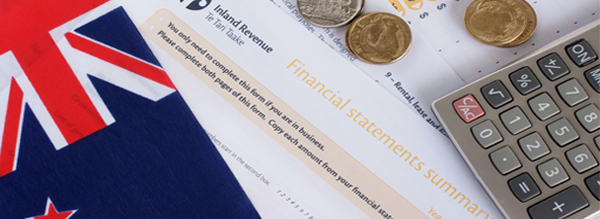If you’re running a small business in New Zealand you need to account for income tax on an accrual/invoice basis – but there are some exceptions.
Although Australia has a useful option for small businesses allowing them to account for income tax on a cash basis, this option is rarely open to Australian businesses to do the same in New Zealand.
One exception is with regard to rental income which is often returned for New Zealand income tax purposes on a cash basis. There can be exceptions to this as well.
But generally, business activity in New Zealand is taxed on the accrual basis. This is the method where sales are included based on when the invoice was raised rather than paid. On the other side of the ledger, costs can generally be claimed even if they haven’t been paid.
There are rules in the legislation which prohibit the “holding back” of raising invoices simply to delay the payment of New Zealand income tax!
As well as rental properties, there are a few other exceptions which can be accounted for in a cash basis. But with changing business models, even those really need to consider if they can still pay New Zealand income tax based on a cash basis or if they should be considering the accrual basis.
Traditionally, the only exceptions to the accrual rules when it comes to business has been when individuals offer personal professional services. Examples taught at tax school used to include the likes of barristers operating on their own and doctors. But changing business models suggest that they should be changing the way they prepare their income tax returns.
For example, doctors are now leveraging their business by employing others such as nurses, technicians or even partnering in a formal or informal way with other doctors. They are deriving their income as a practice rather than as an individual.
In cases like that, accrual accounting will certainly apply because income is being generated from utilising the talents of others in the business.
With the opportunities that abound for many small business operators, some are considering if the tax friendly “cash rules” should apply to them.
Examples such as lawn mowing operators, landscaping or gardening enterprises which are operated as sole traders. There is an argument that as they provide services rather than products, and they operate on their own and earn income from their own personal effort, surely they should be permitted to account on a cash basis.
However, Inland Revenue has issued a recent interpretation statement, IS 16/06, has stopped this line of thinking in its tracks.
The interpretation statement suggests that the cash basis method of reporting for New Zealand income tax purposes may only be appropriate in the following cases:
- An ordinary individual who is not carrying on a trade, profession or a business.
- A professional person who is only offering personal services and receiving only professional fees.
- A business in which the expenditure is only a minor cost in deriving income.
- A business in which the risk of non-collectable trade debts is unusually high.
These new rules will certainly remove the cash-basis method of accounting for income tax for a lot of sole traders who may have thought this method of accounting would apply to them.
Ultimately, the lesson is not to assume that because Australia and New Zealand have so much in common, the rules that apply here will also apply in some shape or form over there. Always seek professional advice before deciding to take a certain position when it comes to New Zealand income tax matters. The tax penalty regime over there is quite aggressive.
The information in this article is indicative of NZ tax rules and changes and not intended to be complete for all intents or purposes and does not constitute advice. It is recommended that you obtain professional advice, suited to your particular circumstances, from us before acting on anything you read.

